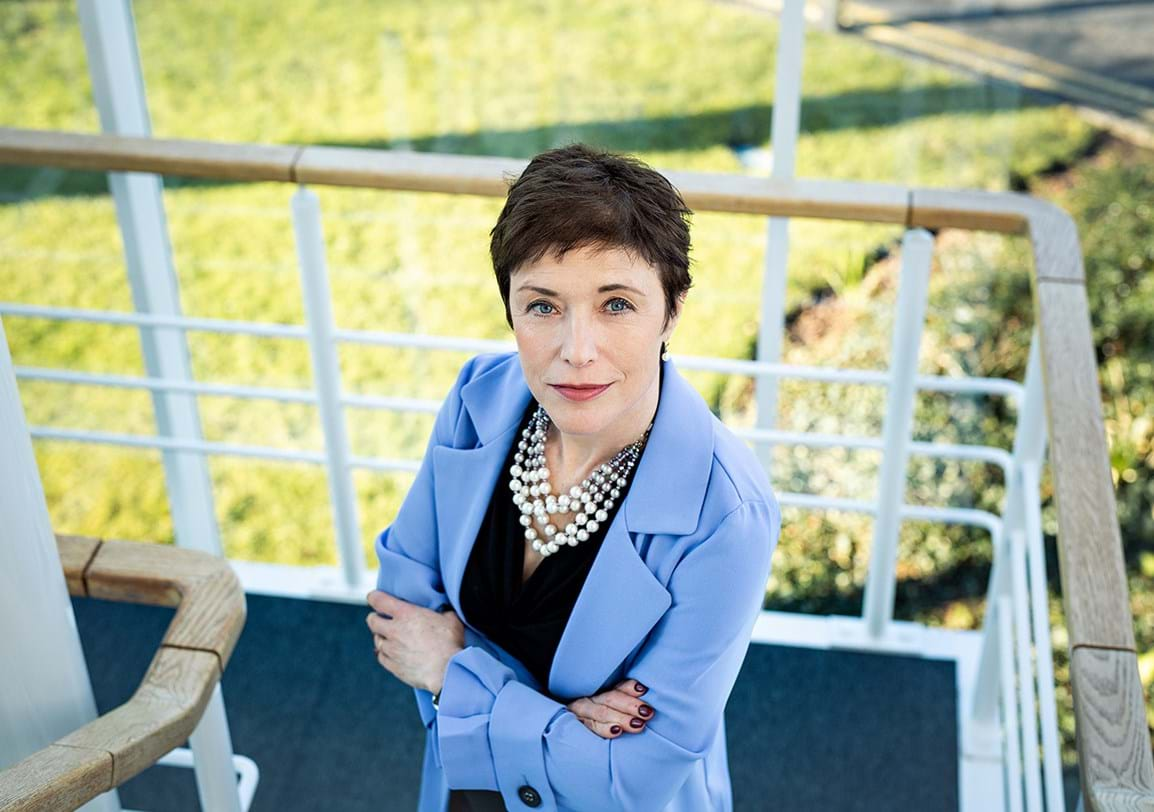
Tips for helping children stay safe online
Tips for helping children stay safe online.

Published: Fri 15 Nov 2019
Religious institutions have a long history of providing community, forgiveness and sanctuary across the globe. But alongside this lies a history of abuse, anguish and the systematic repression of allegations. This is why the Vatican is hosting an inter-faith conference this week on ‘Promoting Digital Child Dignity’, bringing together experts from across the world to share good practice in fighting online child sexual abuse.
Commencing with a Papal Address from Pope Francis, H.H. Sheikh Saif Bin Zayed al Nahyan, Deputy Prime Minister and Minister of Interior of the United Arab Emirates, H.M. Queen Silvia of Sweden, and His All Holiness Bartholomew I, Ecumenical Patriarch of Constantinople will all make presentations and be joined by 80 invited experts from across the globe.
I am honoured to be one of those attending and to speak up for the thousands of children who have been robbed of their childhood by adults who have sexually abused them and circulated their images and videos on the internet.
The discussion this week in Rome follows the 2017 signing of the Declaration of Rome, which set out a series of actions to promote and protect the dignity of children online. As a world leader in tackling online child sexual abuse, the technical expertise and experience the IWF can offer are crucial in achieving these goals.
The internet is a product of our innovation, collaboration and commitment. But whilst bringing many wonders to our lives, it is also enabling the exploitation of the most vulnerable in our society. Every day children are being groomed and abused. Images of the worst moments of their short lives available for users across the globe for years to come, haunting these victims as they grow up. We all must ask ourselves, are we content in allowing this to happen?
Education, Awareness and Prevention
To remove the threat of child sexual abuse imagery from our online world, we must tackle the demand and empower the vulnerable. As the Declaration acknowledges, this requires candid, honest conversations on an issue that is uncomfortable and rarely discussed.
But we must have these conversations. Child sexual abuse happens, every day, across the world. The evidence of these crimes is circulated online for all to see, for satisfaction, curiosity or entertainment. The National Crime Agency conservatively estimates that 144,000 users from the UK are active on dark web, looking for images of sexual abuse. This problem is not going to go away on its own.
The IWF is determined to tackle this head on – whilst only 0.04% of content is hosted within the UK, the demand for such content is clearly significant. We have already run an effective campaign with the Home Office encouraging people to report to us, and we are calling for the government to fund a long-term national prevent campaign to address the demand.
In addition, the UK Safer Internet Centre, of which the IWF is a member, is funding a campaign to address the rise of self-generated imagery. This imagery now makes up 1/3 of all content that our analysts see – more and more children are being groomed, coerced and tricked into performing sexually over webcam. 96% of these images and videos show girls, 85% of whom are aged 11-13. This is a national crisis. We must act.
Global Collaboration
Websites, platforms and image hosting sites do not abide by the traditional boundaries of national states. Child sexual abuse is a global problem that demands a global solution. As access to the internet is spreading rapidly throughout the world, we need to make sure the infrastructure is in place to protect our most vulnerable. As the Declaration acknowledges, this crisis requires global collaboration and cooperation.
The IWF is committed to working collaboratively with nations, transnational organisations, and industry across the globe to eradicate online child sexual abuse. We run reporting portals in areas which lack the financial means or resources to tackle child sexual abuse imagery, and by 2020 we hope to have launched 50 portals around the world. These portals are gateways to our Hotline, enabling people around the world to report images and videos of child sexual abuse.
The journey is only starting
This will be the second time the Vatican has hosted an event attended by Pope Francis. Whilst this has to be applauded, there is still so much more that he and other religious leaders need to do to demonstrate that they have a zero-tolerance approach to abuse perpetrated by their members. This most heinous of crimes cannot be hidden behind a cloak of secrecy but must be called out and reported as the criminal offence that it is and dealt with accordingly. This is the least that is owed to the victims of historical abuse and to ensure that there is nowhere for perpetrators to hide now or in the future.
Every day we, at the IWF, see more children. Every day we realise how much more there is to be done.
All of us know young, vulnerable children. All of us have a responsibility to protect them from this abuse. All of us, in our communities, homes, and countries – regardless of our position, can have an impact and save a child.
We must get our houses in order.

Tips for helping children stay safe online.